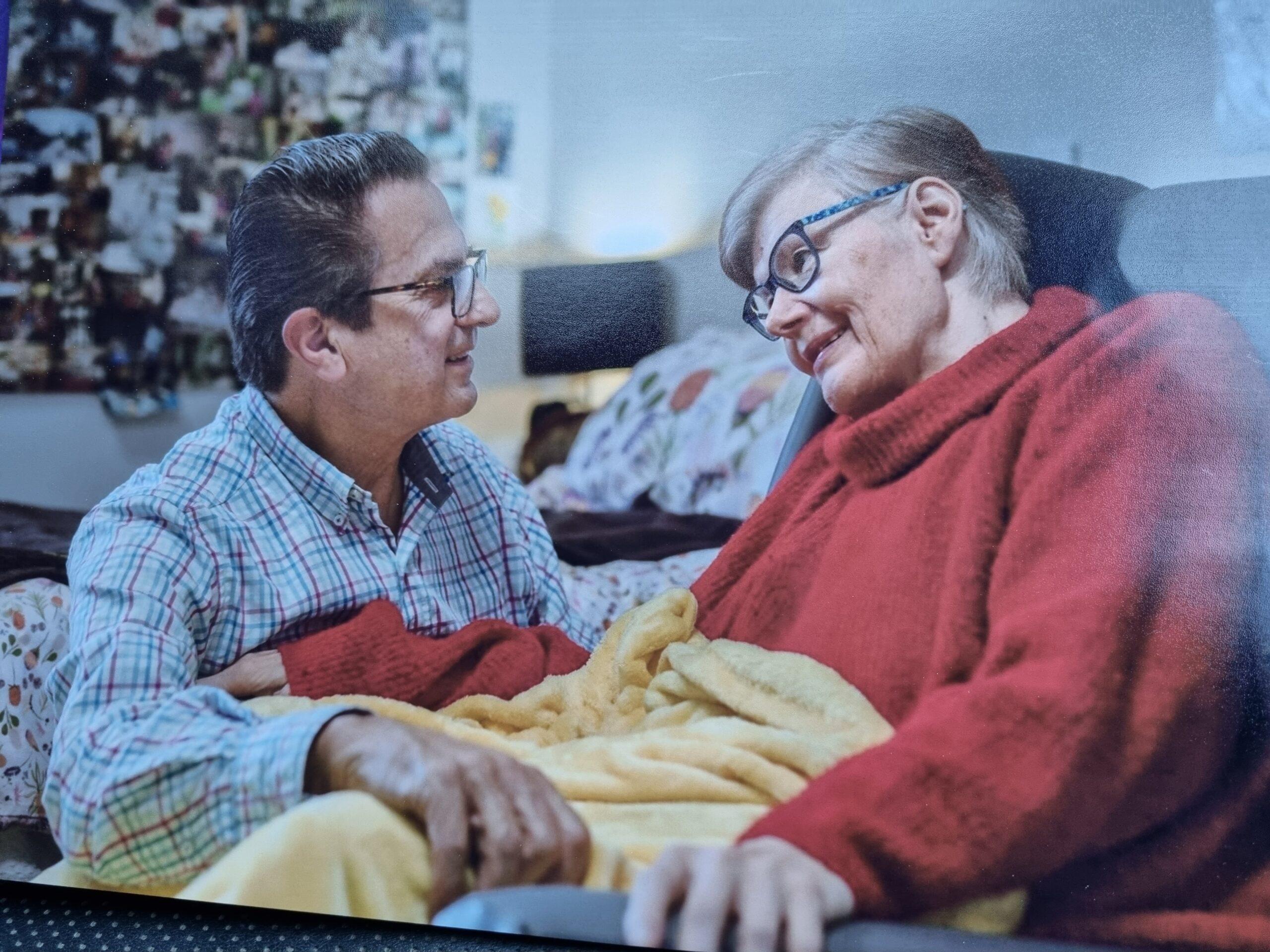James and Linda’s story
Take early action and don’t dismiss changes or abnormalities

My name is James. My wife, Linda, and I have been married for 40 years and we have two daughters.
In 2018 Linda complained about feeling fatigued and difficulty finding appropriate words in conversations. She visited a new general practice with a reputation for an integrated medical approach. After some investigations Linda received a diagnosis of hypothyroidism and started a new treatment regime.
At this time, my daughters and I started to notice Linda’s writing on her Facebook posts and other social media was slipping. This was unusual as Linda was an accomplished writer and had authored multiple textbooks. We also noticed she was easily distracted or had some odd angry outbursts. Linda had previously managed our financial affairs, but we started receiving final notices about unpaid bills.
Our family wanted clarity as to whether these issues were consistent with her diagnosis of hypothyroidism (which could cause temporary cognitive issues) or if they were better explained by another emerging condition. So, we went back to her GP.
Having the support of Linda’s GP helped us understand what she was experiencing was not normal. The GP referred Linda to a stroke physician/geriatrician who, after undertaking some scans and investigations, diagnosed Logopenic progressive, non-fluent aphasia (LPA). This is a type of dementia characterised by language disturbance, including difficulty making or understanding speech. That specialist referred Linda to a female geriatrician for ongoing care, and we discovered the aphasia was secondary to a frontotemporal dementia.
Unfortunately, our experience with medical specialists initially left us in the dark about the road ahead. They did not provide a map, tools or resources that would help us navigate this journey of caring and coping with a lot of unknowns.
We had to be proactive and seek more information to better understand the diagnosis and adjust. I undertook an online course about dementia care at the University of Tasmania.
Linking in with Dementia Australia was pivotal. They provided information about the trajectory of care and support Linda and I would need. They linked us to MyAgedCare and we eventually received a Home Care Package which we self-managed. We found care workers for a variety of activities like domestic and gardening services and one-on-one personal support for Linda.
There might be a host of reasons, anxieties and fears that prevent you from taking action and seeking help for the symptoms and concerns you or a loved one is experiencing. But you have to talk about the things that concern you. Talk to your partner or loved one about whether they’ve experienced changes in themselves which made them worried or unsure. And urge them to discuss these matters with a health professional.
My advice would be to take early action and don’t dismiss changes or abnormalities but seek plausible explanations. This may mean getting involved yourself and accompanying your partner or loved one to his/her GP appointment.
The 40-year partnership Linda and I have shared helps me know what brings her delight and enjoyment in her daily life and social routines, and conversely, what she usually finds distressing and unsettling. While pushing forward day-by-day and enduring losses, I allow the process of grief to take its natural course. But I still hold on to a profound sense of gratitude and privilege for sharing a life together over four decades. This includes my time as Linda’s full-time carer, anchor and advocate.
Watch James and Linda’s digital story:
For more digital stories, visit the Face Dementia YouTube Channel.


